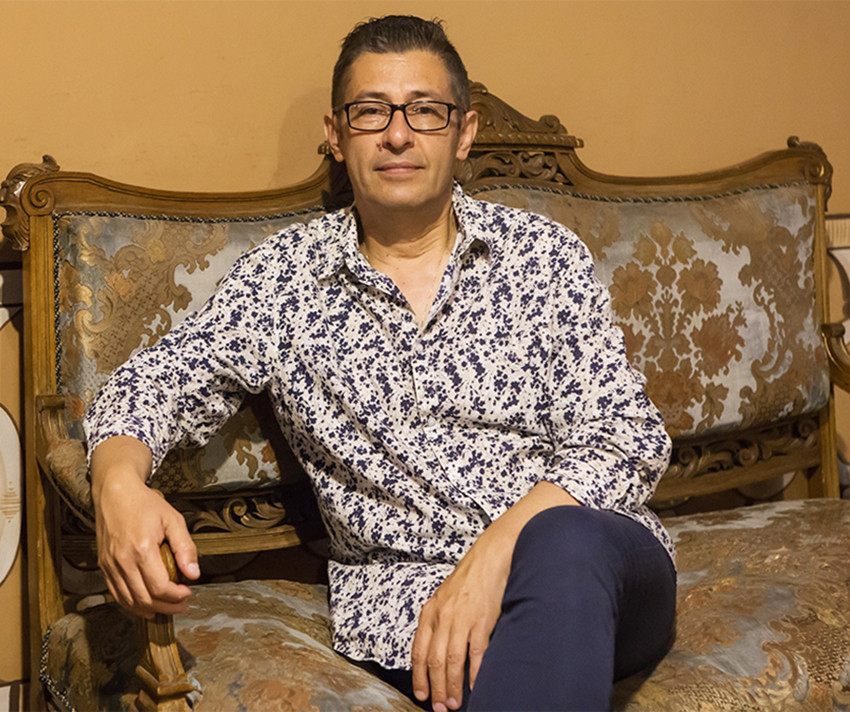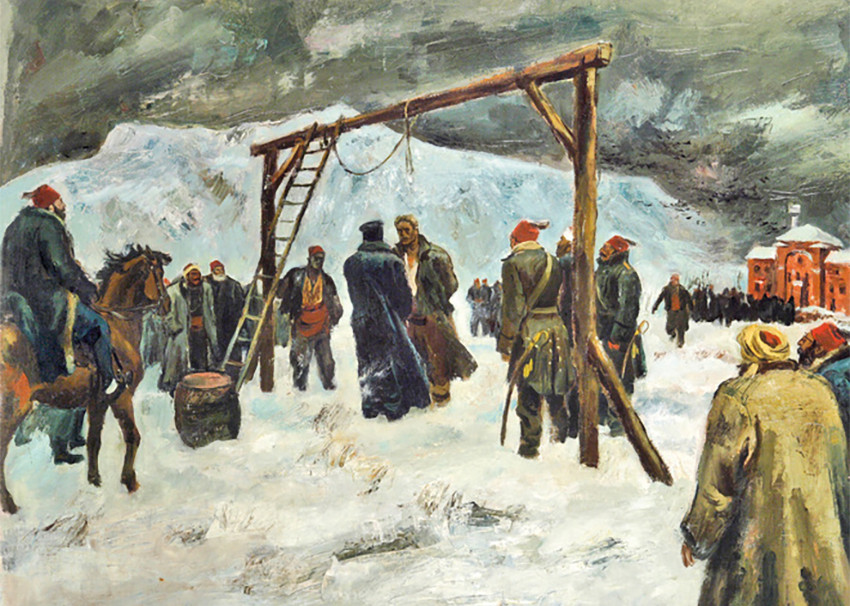"It's bitter cold, wood and stone are cracking, we've been with no food for two or three days, yet he sings and is always cheerful! In the evening - before we go to bed - he sings; in the morning, as soon as he opens his eyes, he sings again" - this is how Bulgarian poet and revolutionary Hristo Botev describes his close friend Vasil Levski, whom he described as an "unheard-of character" - "When we are in the most critical situation, he is just as cheerful then, as when we are in the best of situations".
According to other contemporaries of the Apostle of Bulgarian Freedom as Vasil Levski is lovingly called, even when he was traveling on his committee business, Levski constantly sang and adapted lyrics and songs to melodies already familiar to him.

"Personally, I have always thought that Levski's notebook is part of his spiritual heritage. We can find many things there. But it was a real surprise to me, many years ago, that the lyrics of popular songs of that time were written there. Songs that were sung, songs that he used to sing, and this is truly part of his inner spiritual world," Spassov commented.

"The elderly woman who tells the story of Raina Katsarova is called Grandma Petkana Hashova. She sang this song in Turkish. After that, Raina Katsarova recorded it in the Bulgarian National Radio as a keepsake, and in fact, when we were making the big film of the Bulgarian National Television entitled "The Songs of the Apostle, we translated this song into Bulgarian. It has a very strange, dramatic text - "Don't sing, nightingale, I have time, I am not in a hurry. I have neither a mother nor a father, don't sing, don't hurry, nightingale...". This is the message, really quite sad, sacred at times. But it's really strange, if you listen to it in the original, it sounds like a typical old Turkish folk song, in the whole style of a Turkish folk song. When the colleagues from the Turkish editorial office of the Bulgarian National Television translated it and we recorded it with accompaniment, it became Bulgarian. Because these songs here, in the Balkans, have a lot in common, but they also have a lot of differences.
Music... The art that accompanies us throughout our lives, in the mundane routine and in festive moments. It takes us through life, shows us life more beautifully and meaningfully. It creates and evokes memories, enhances emotions, and last but not least..
On International Music Day, listeners of Radio Bulgaria are warmly greeted by Penka Kouneva, the Grammy Award-winning Bulgarian composer who has spent over twenty-five years building her career in Los Angeles, writing and orchestrating music for..
The Bulgarian National Radio Symphony Orchestra, under the baton of Chief Conductor Konstantin Ilievski, opens its new season with a festive concert at Sofia’s renowned Bulgaria Hall on 1 October – a date designated over half a century ago by UNESCO as..
Ekaterine Buachidze, a beautiful lady from Georgia with a superb mezzo-soprano voice and Mihai Damian, the charismatic baritone from Romania..
One of the pop scene’s defining vocal trios of early 2000s Bulgaria – Antibiotika – is back. Despite being scattered across the globe, Ani, Silvia, and..
Prominent Bulgarian violinist Petar Deltchev – an exceptionally talented musician with a difficult and sad fate – left this world on October 24, 2025 ...

+359 2 9336 661
